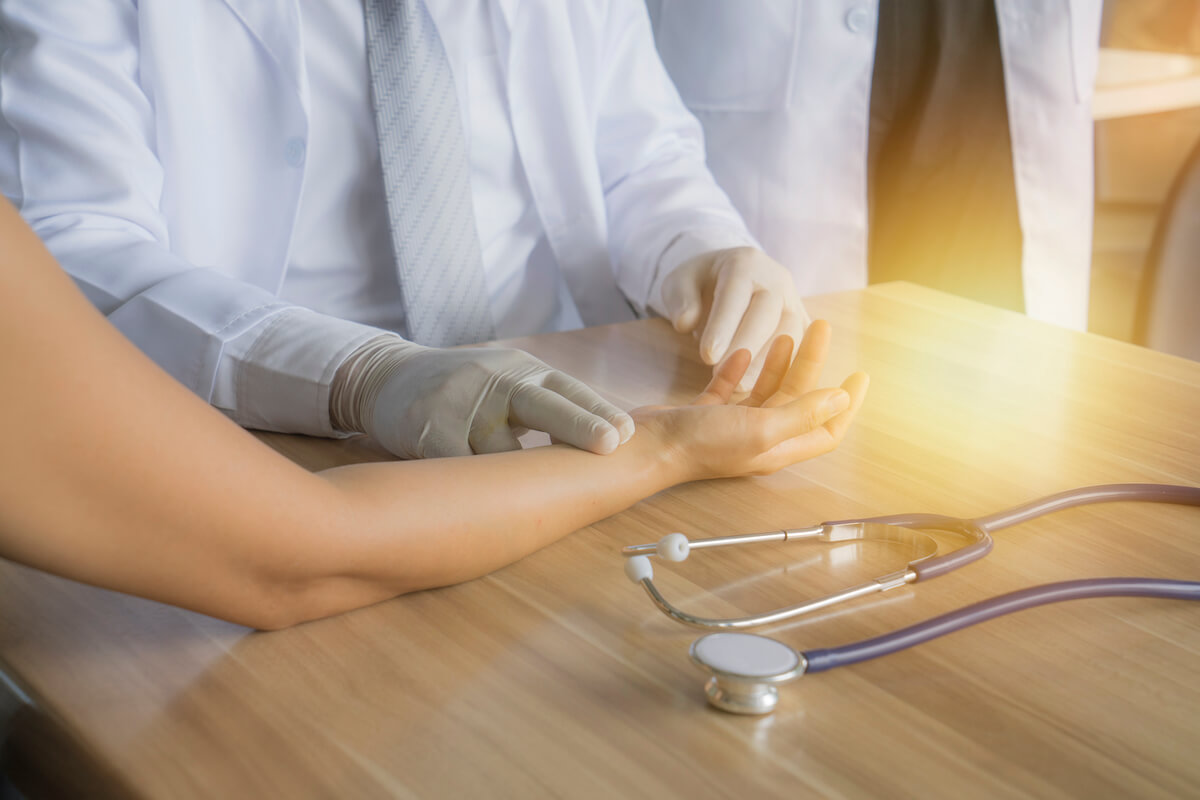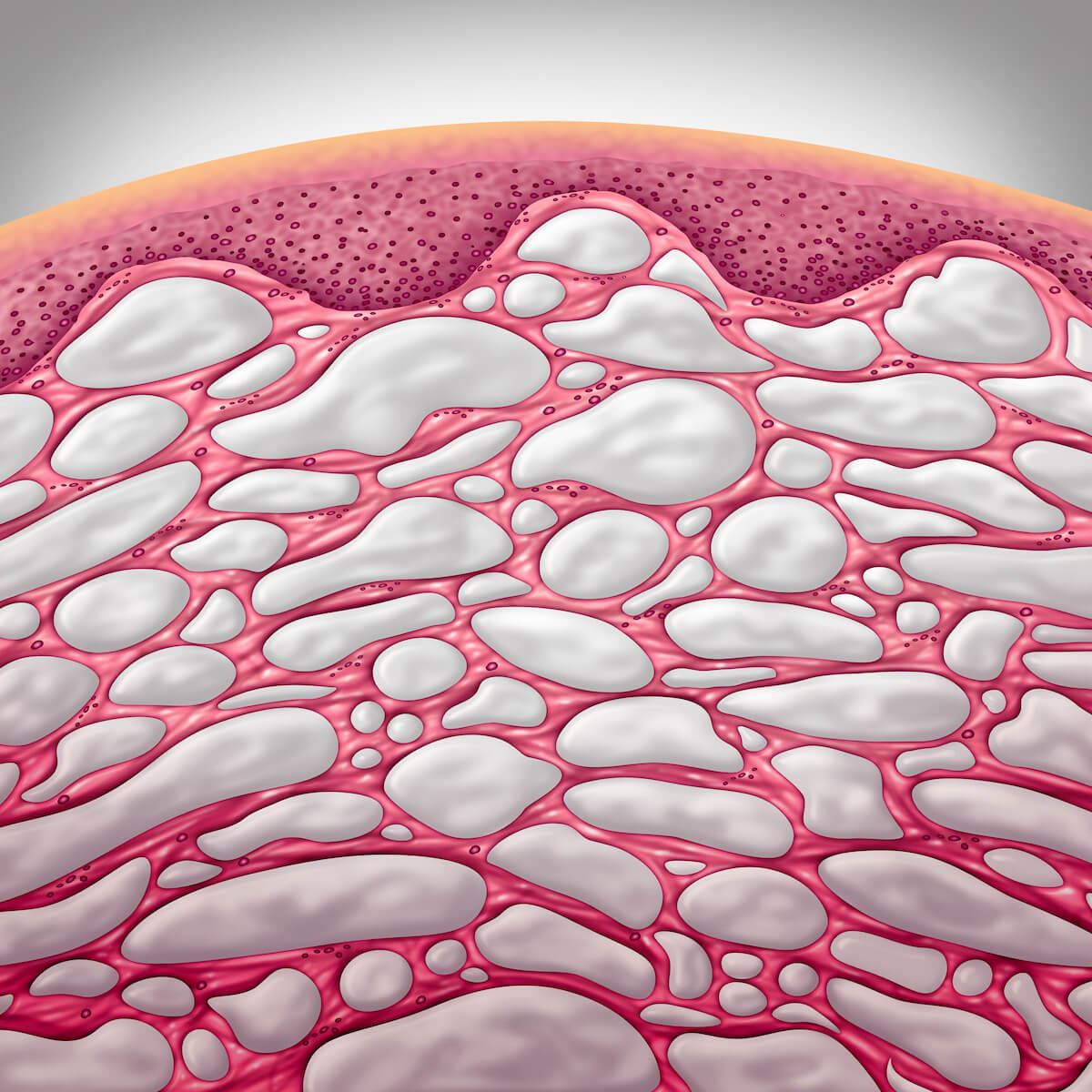Looking at Acupuncture from the Western Medical Perspective
Dr. Alex Lau
Director of Medical Services and Convener of the Neurology Group, Hong Kong Institute of Integrative Medicine (HKIIM), Faculty of Medicine, CUHK
Specialist in Neurology
Host: Ms Janet Wong
Information Compilation: Ms Kitty Au Yeung
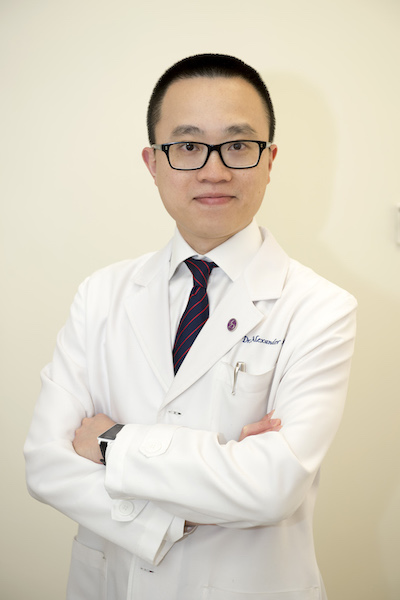
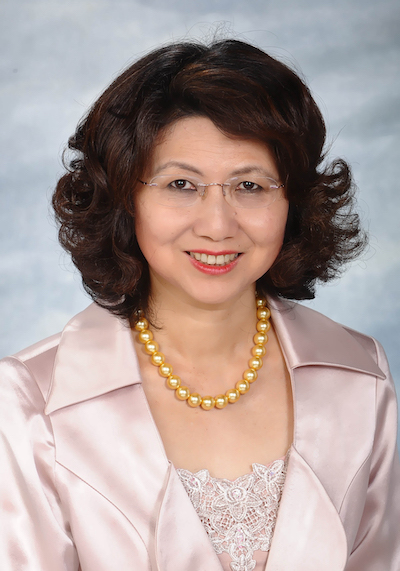
Introduction: Acupuncture has a long history in Traditional Chinese medicine. In recent years it has also been accepted by the Western medical community internationally for relieving symptoms in certain patients, such as those suffering from side effects of cancer treatment; or to assist in the rehabilitation of stroke patients. In this interview, Dr. Alex Lau analyzes how Western medicine views acupuncture treatment, and specifically how acupuncture can alleviate the side effects of cancer treatment.
Part One - Definition
Part Two - Exploring Acupuncture from an Anatomical Perspective
Part Three - Looking at the Effectiveness of Acupuncture from a Western Medical Perspective
Part Four - Use of Acupuncture in Cancer Patients
Part Five - The Risks of Undergoing Acupuncture Treatment
Part Six - Hong Kong Integrative Medicine(HKIIM), Faculty of Medicine, CUHK
Wong: Acupuncture has a long history in traditional Chinese medicine, and in recent years it has also been accepted by the Western medical community internationally for relieving certain symptoms in patients, such those suffering from side effects of cancer treatment; or to aid in the rehabilitation of stroke patients.
So how do we understand acupuncture treatment from a Western medicine perspective? Today I am very honored to invite Dr. Alex Lau to discuss with us. Thank you, Dr. Lau.
Lau: You're welcome.

Part One - Definition
Wong: Dr. Lau, you are a specialist in neurology and are also involved in the research of integration of traditional Chinese and Western medicine, can you tell us why you are interested in this area?
Lau: As doctors, our greatest hope is to be able to help patients. In my daily work, I often come into contact with stroke patients, some of whom need immediate treatment for acute stroke, and some need rehabilitation after treatment. They all face different challenges, such as paralysis, inability to sleep, problems with urination and defecation, etc. From a Western medical perspective, we will provide appropriate treatment, but it doesn't really solve all problems.
I have many patients who receive traditional Chinese medicine treatment while receiving Western medical treatment, and from observing their progress, I understand that Traditional Chinese Medicine has certain positive effects, so I have developed an interest in this area.
Wong: Can you explain some important terms?
The first one is of course "acupuncture", as I understand "needle method"(針) and "moxibustion method"(灸) are different.
Lau: I am not a Traditional Chinese medicine doctor, but from clinical research, acupuncture is the use of needles to puncture the patient's acupuncture points. Of course, traditional Chinese medicine doctors decide how to apply the needle after inspection, listening and smelling, inquiry, and palpation(望、聞、問、切). And "moxibustion" is to stimulate acupuncture points with moxa or other Chinese medicines through heat, which also has a therapeutic effect.
Wong: Apart from acupuncture there is another term "acupressure", what is this?
Lau: This is to stimulate the meridians(經絡) through pressure to bring about therapeutic effects.
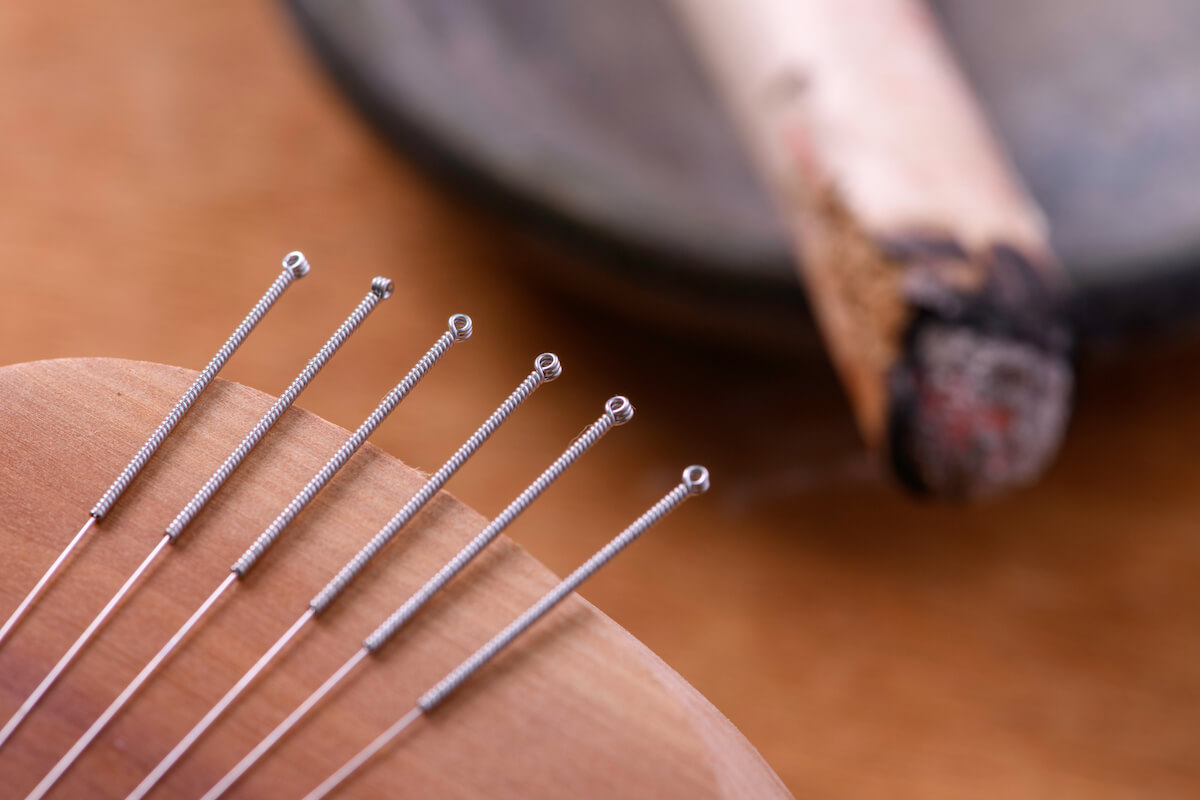
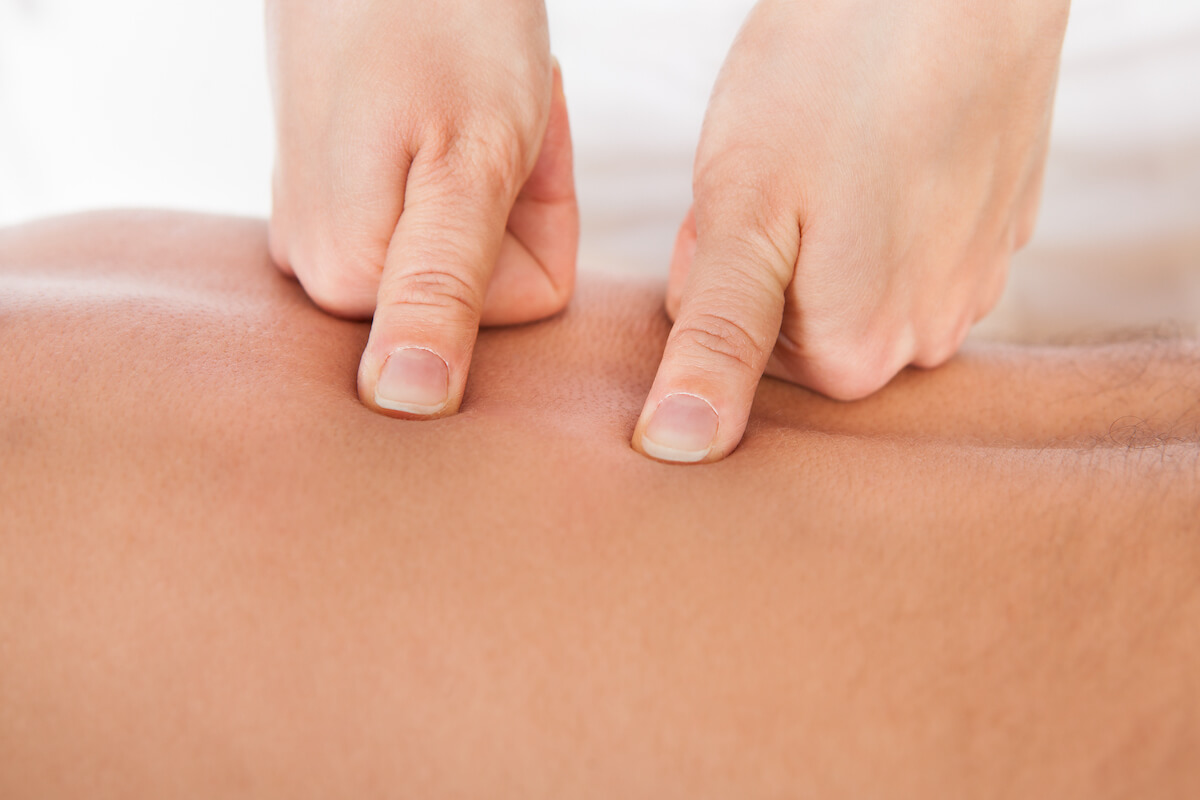
Part Two - Discussing Acupuncture from an Anatomical Perspective
Wong: Traditional Chinese medicine says that acupuncture stimulates meridians, so how is it explained from a Western anatomical perspective?
For example, Traditional Chinese medicine often talks about meridians; Western medicine talks about the neural system, nerve endings, sensory functions, brain... What are the similarities and differences between the two?
Lau: From the perspective of Western medical anatomy, the structure of the human body is very clear, such as organs, bones, muscles, nervous system, etc. The meridian system of traditional Chinese medicine is completely different. If you depict the two (meridians, nervous system) on a human model, they are completely different.
What we are interested in now is whether there are any connections between the two.
One example is that Traditional Chinese medicine doctors will use meridians to explain how a person's brain controls/influences body organs/functions.
From a Western medical perspective, we occasionally see some patients who have heart problems soon after suffering brain trauma, and from a neurology perspective, there may be some connection between the brain and the heart's neural network.
This makes us think about whether there are some "meridians" between the brain and the heart as Traditional Chinese Medicine practitioners say. If so, it can explain why Traditional Chinese medicine can affect other parts of the patient by applying needles to one part of the patient, such as affecting the limbs by applying needles to the abdomen.
We need to do more research to understand or confirm that the nervous system in Western medicine and the meridian system in traditional Chinese medicine have any commonalities.
Wong: Can you explain the human nervous system to us from a Western medical perspective?
Lau: Simply put, the most important thing is the central nervous system, which includes the brain, cerebellum, brainstem, and spinal nerves.
Apart from that, there is the peripheral nervous system, which includes the nerves that come out from the spinal nerves, controlling the movements of our different parts. For example, if I want to shake hands with you, then my brain will command my central nervous system and peripheral nervous system to make appropriate responses/coordination to make this action.
Wong: This is what we can control, what is called "voluntary" in English, but there are some things we can't control ("involuntary").
Lau: That's our autonomic nervous system. For example, when we eat, our stomach will automatically receive food and secrete gastric acid; and if we are nervous, our abdomen will feel uncomfortable, etc.
Wong: Traditional Chinese medicine often talks about "blood and qi"(血氣), does it have any relation to the circulatory system mentioned in Western medicine?
Lau: I believe that the circulatory system mentioned in Western medicine and the "blood and qi" mentioned in traditional Chinese medicine are not the same, but there may be some connections. For example, if a person's circulatory system is not good, traditional Chinese medicine may also say that his "blood and qi" is not good.
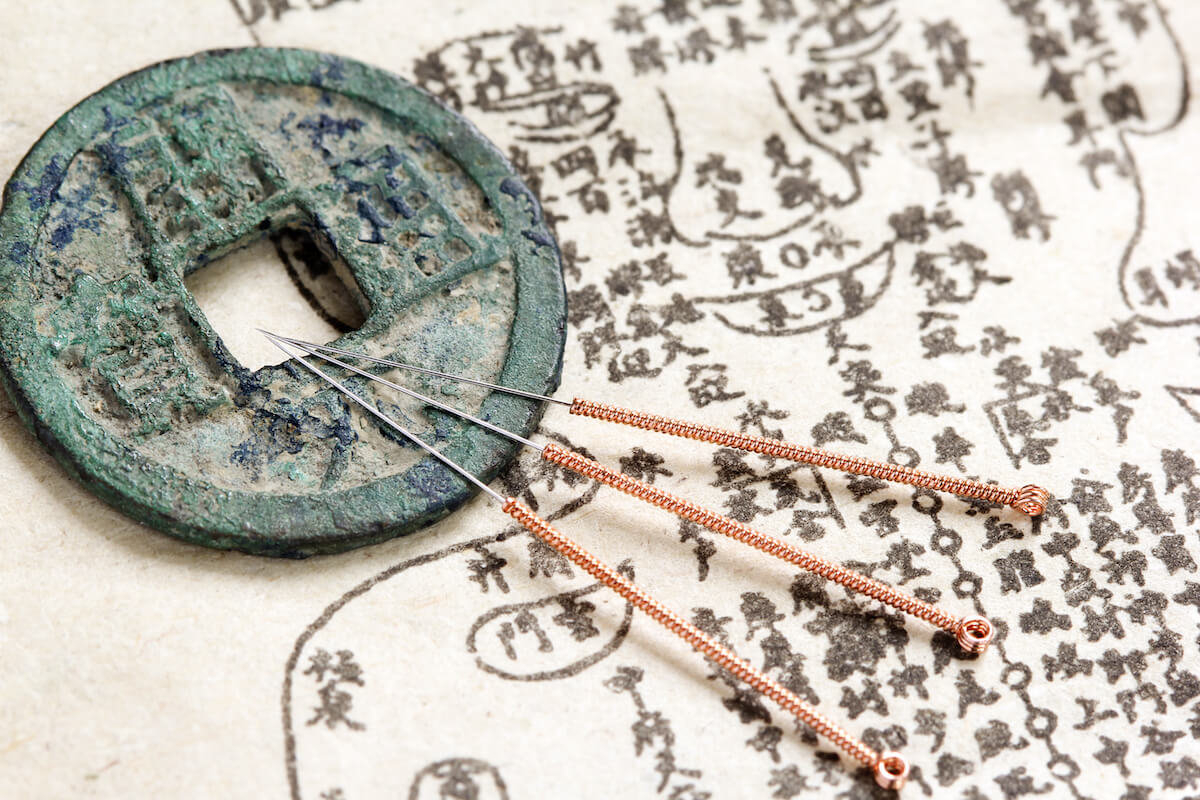
Part Three - The Effectiveness of Acupuncture from a Western Medical Perspective
Wong: From the perspective of evidence-based medicine, is there any objective data to prove that acupuncture is indeed effective?
Lau: In the past 10 to 20 years, both in terms of quality and quantity, the Chinese medicine community has been able to prove that acupuncture is effective in treating diseases.
Many good Chinese medicine studies are based on acupuncture as the theme, and researchers design and implement research plans based on the principles of evidence-based medicine. For example, in addition to using real "needles", they use some "sham needles" to stimulate the patient's acupuncture points for comparison. The outcome measures are also of good quality, which makes Western medicine accept these research reports to have a high degree of credibility.
Wong: Using the "sham needle" method is somewhat similar to the "double-blind" method used in Western medical clinical trials?
An interesting point is that the place where a Chinese medicine practitioner puts the needle is not necessarily the place where the patient has a problem (the so-called lesion), so how is the message transmitted? In other words, how is the transmission mechanism explained from a Western medical perspective?
Lau: This is a very complex field, and the practices of Western medicine and Chinese medicine are completely different.
In Western medicine, doctors base their treatment on the patient's anatomy, pathology, etc. When our physiotherapists treat patients (for example, electrotherapy), they also design according to the nervous system. Traditional Chinese medicine doctors, on the other hand, base their treatment on the information they get from inspection, listening and smelling, inquiry, and palpation(望、聞、問、切 ) and decide how to apply acupuncture to the patient after multi-angle analysis.
Wong: Can you tell me which diseases acupuncture is particularly effective in treating?
Lau: It has good results in stroke, pain management, and alleviating the side effects of certain cancer treatment.
These are all chronic diseases, affecting patients for months or even years, and often Western medicine fails to offer any more solutions. We hope that if possible, traditional Chinese Medicine can bring some improvement to patients through acupuncture.
Wong: Before we discuss cancer patients, I would like to ask you about the role of acupuncture in stroke treatment - because this disease is also troubling many people.
Lau: In addition to Western medical treatment in Hong Kong, traditional Chinese medical treatment (including acupuncture) can also provide assistance.
For example, if a patient has difficulty swallowing due to a stroke, in addition to Western medical speech therapy intervention, traditional Chinese medical treatment can also provide assistance.
We have conducted research with the School of Nursing at the Chinese University of Hong Kong, which shows that many stroke patients with shoulder subluxation and pain have improved after receiving traditional Chinese medical treatment (including acupuncture).
The Hospital Authority has also previously invited the Faculty of Medicine of the Chinese University of Hong Kong to review the data of all stroke patients in the 18 hospitals under the Hospital Authority. We found that if patients receive traditional Chinese medical treatment (including acupuncture treatment) in addition to Western medical treatment, they perform better in terms of recurrence or mortality.
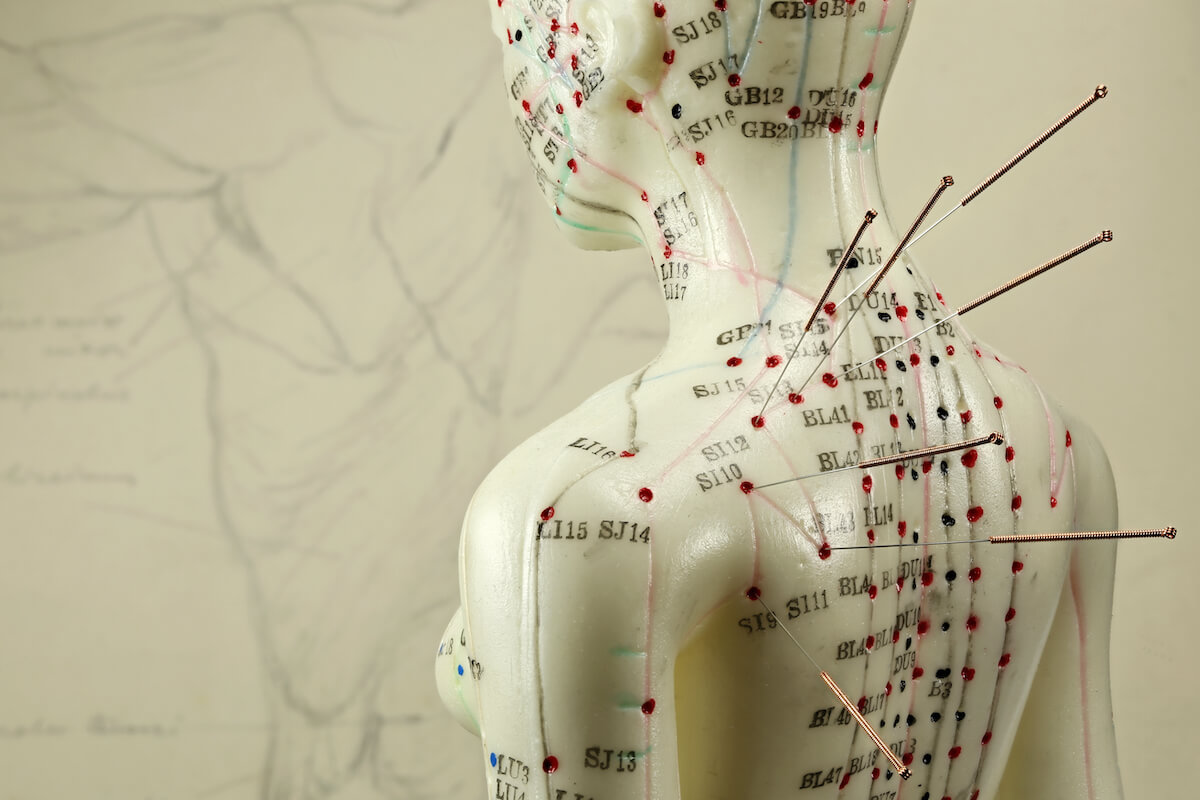
Part Four - The Use of Acupuncture in Cancer Patients
Wong: Our guide is written for cancer patients, so of course we hope to discuss in detail the use of acupuncture in cancer patients.
Can you tell me how acupuncture can play a role in the treatment of a cancer patient?
Lau: Actually, acupuncture can help alleviate discomfort throughout the entire journey, including some discomfort that patients may already have before treatment; during treatment (such as chemotherapy, radiotherapy). During chemotherapy treatment patients will encounter some side effects, because the treatment not only kills cancer cells, but also harms normal cells. For example, first-line chemotherapy drugs for treating lung cancer, colorectal cancer, and breast cancer all bring different side effects. Even after the treatment is over, patients may also face some sequelae (such as fatigue).
Wong: Speaking of chemotherapy, patients can be said to be scared at the mention of it. Now let's discuss some common side effects of chemotherapy and how acupuncture can help alleviate them.
The first is neuropathy.
Neuropathy
Lau: Neuropathy is indeed one of the most common side effects.
If the problem of neuropathy is really serious, the patient may need to temporarily stop treatment. Although we can give patients some nerve painkillers in Western medicine, they are not very effective. And we found that in some cases, acupuncture can help.
Wong: Neuropathy is most common in fingers and toes, why is this?
Lau: The fingers and toes of a person (as well as the face) are the places where the nerve lines are most dense. The purpose is to receive different messages (sensory function), so when chemotherapy drugs destroy the nerve lines, these places are most affected.
Pain
Wong: Then there is pain.
Lau: In terms of pain management, it can be handled better if traditional Chinese and Western medicine can be integrated.
First of all, we need to understand the reason behind the pain, which may be because the tumor itself invades the nerves, and our nerves are responsible for feeling and receiving signals. If the nerve line is affected, there may be swelling/pain, Western medicine can use drugs to deal with it, and traditional Chinese medicine can use acupuncture to relieve it.
Wong: Are these phenomena short-term or long-term?
Lau: It depends on the cause of the problem. If the tumor destroys the nerve , then the impact can be lasting or even permanent. Although the human brain is very smart and will try to make adjustments, the problem still persists for a long time.
Wong: When we say that the brain will make adjustments or adaptations, does this mean growing new nerves or the existing healthy nerves work harder to "compensate"? There is a term in English called ‘neuroplasticity’.
Lau: I believe everyone agrees that the smartest people in the world must include Einstein, but according to research, he only used 10 to 20% of his brain power, so the human brain has a large reserve.
For example, if a person has a stroke and some cells in the brain die, then the other healthy cells in the brain will attempt to compensate for the deficiency. These healthy cells' original duties do not include the work of the dead cells, but they will try their best to compensate. This is neuroplasticity.
For example, tactile cells are originally to help us react when we encounter danger. For instance, when we touch something hot, we will know to retract our hand. But if there is a problem with the tactile cells, they will feel pain even without stimulation or danger, then our brain will slowly make adjustments, trying to reduce or even extinguish these signals.
Loss of appetite, nausea, vomiting
Wong: Other common side effects are related to our digestive system, including loss of appetite, nausea, and even vomiting.
Lau: Yes, we often say that patients have no problems during "drip"(chemotherapy process), but afterwards, they will have nausea, vomiting, etc. From a Western medicine perspective, we will use antiemetic drugs to help patients; from a traditional Chinese medicine perspective, acupuncture can be used to relieve it.
Fatigue
Wong: Another side effect is fatigue. Some patients tell me that they are like a mobile phone without being charged: they have no energy at all.
Lau: The phenomenon of fatigue appears in many chronic diseases. This is because there is a war going on inside the patient's body - from the perspective of cancer patients, it is fighting against tumors; from the perspective of patients with senile degeneration, even small things require a lot of brain energy, so they feel very tired.
Western medicine is often helpless in the face of this problem. Although some drugs can bring some stimulation, we do not recommend using them because they will bring side effects.
At this time, if the patient wants to accept acupuncture treatment, we also agree.
Wong: In addition to acupuncture, I understand that Tai Chi and Qigong can also help.
Lau: I also often encourage patients to do Tai Chi and Qigong, because they do not require any equipment or a large space. As long as the patients have perseverance and get guidance from professionals, they can help solve the problem.
Previously, I visited a hospital in Mainland China on exchange program and noticed an interesting phenomenon. At eight in the morning, the nurses would ask all patients (if they were capable) to walk out to the corridor and do some exercises such as Tai Chi and Qigong.
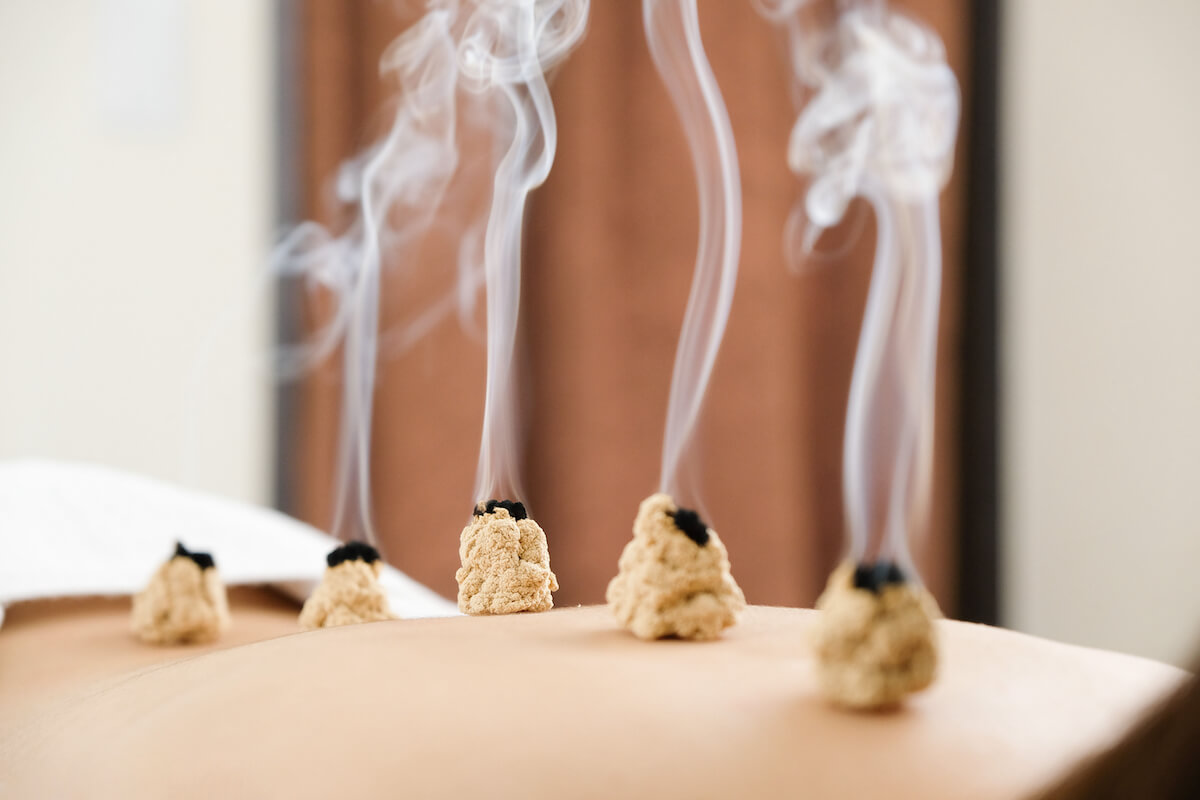
Part Five - Are there risks in acupuncture treatment?
Wong: We've talked a lot about the benefits of acupuncture, so let's switch topic. Are there any risks with acupuncture? For example, could the needle puncture an artery or vein under the skin?
Lau: My understanding is that there won't be much risk.
Of course, theoretically, when the needle pierces the skin, it can cause bleeding and inflammation. But the needles used by traditional Chinese medicine practitioners today are disposable, which greatly reduces the chance of inflammation.
If a patient has certain issues or is taking certain medications (such as blood thinners), they need to be careful. But it doesn't mean they can't have acupuncture treatment at all. Patients should discuss this with their doctor.
As for whether the needle could puncture a blood vessel, the needles used by traditional Chinese medicine practitioners during acupuncture are very thin, even thinner than the ones we usually use for injections. And except for special circumstances, the depth of insertion is only the skin surface and muscle surface, not too deep, so the chance of puncturing a blood vessel is very low.
I also want to mention that a small number of people may feel dizzy during acupuncture, so patients should lie down or sit in a chair with a backrest during treatment to avoid any danger.
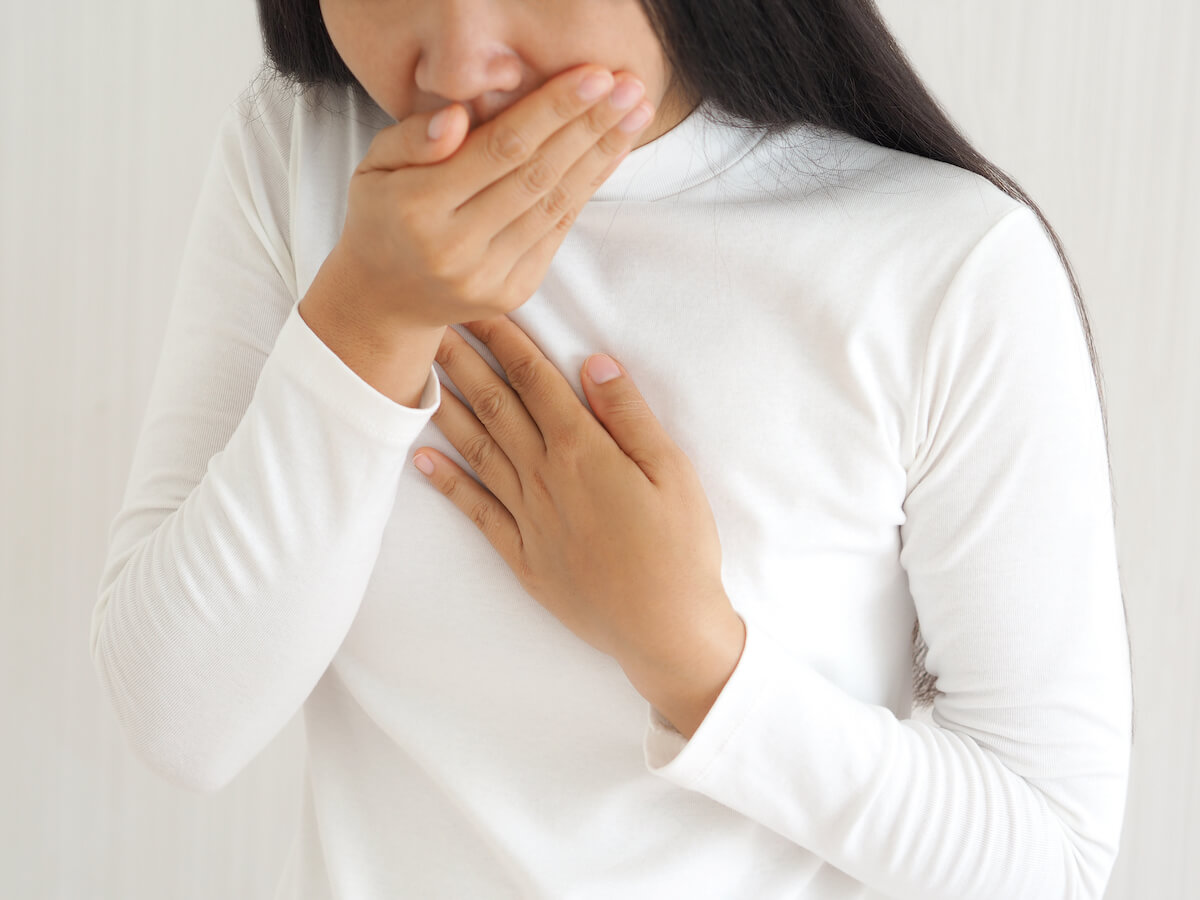
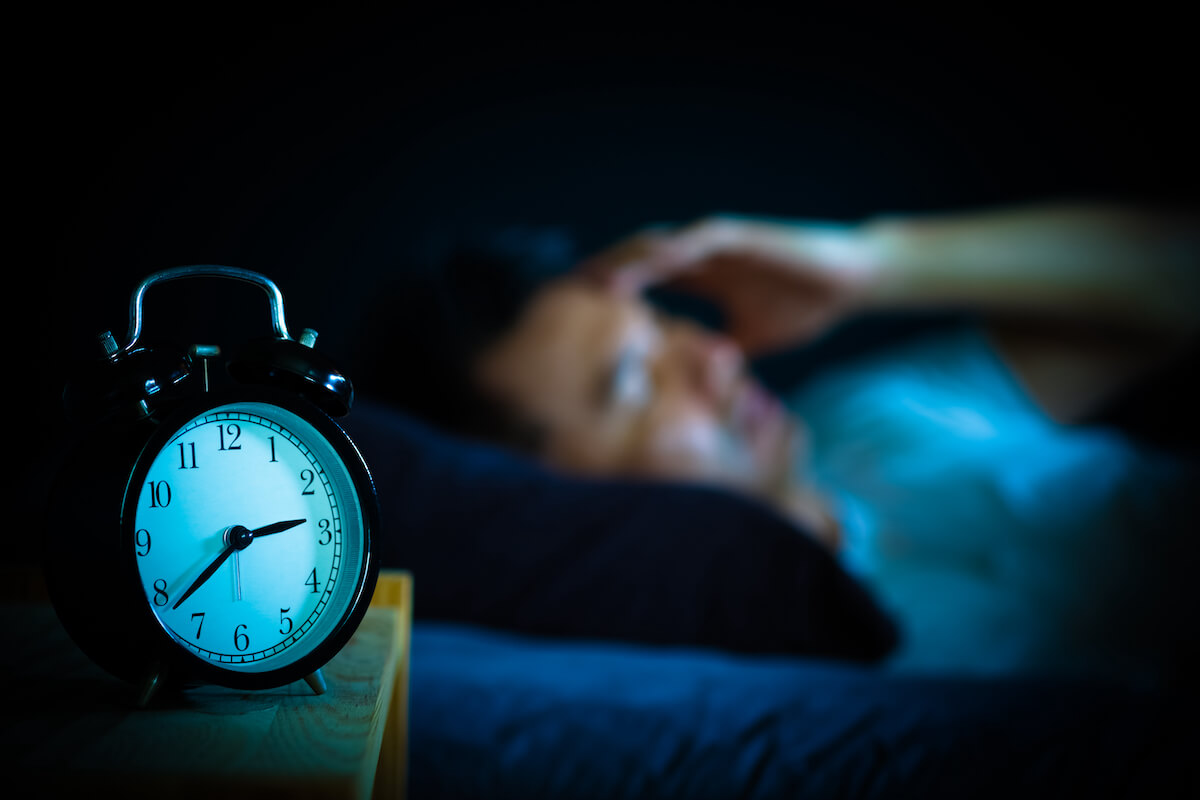
Part Six - The Institute of Integrative Medicine at The Chinese University of Hong Kong
Wong: I know there's an Institute of Integrative Medicine at The Chinese University of Hong Kong. Can you talk about the work there?
Lau: Since The Chinese University of Hong Kong has both a Western medicine faculty and a traditional Chinese medicine faculty, we hope to combine the two to provide the best treatment for patients. Over the past few years, our research has covered many areas, including stroke, tumors, and functional gastrointestinal diseases.
In terms of patient treatment, our clinic provides treatments for tumors, stroke, and other conditions, including acupuncture.
I think one of the best things is that we have a platform for the exchange of traditional Chinese and Western medicine - as a specialist in neurology, if I think that traditional Chinese medicine can help a patient, I will refer him to see a Traditional Chinese medicine practitioner; and conversely, if a Traditional Chinese medicine practitioner finds that a patient can benefit from Western medicine, he can also refer them to us.
Wong: Learning that there are so many new developments is really encouraging.
I'm very grateful for your time today and for sharing so much.
Lau: Don't mention it.
